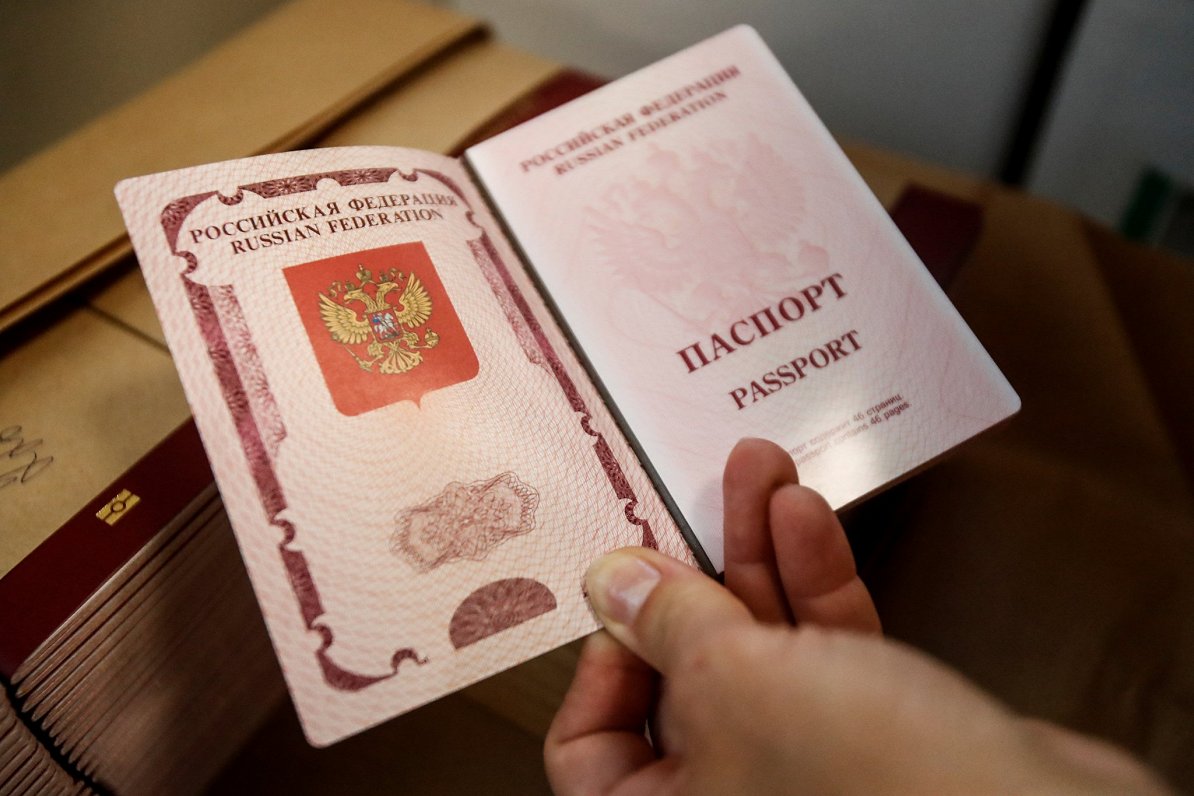As a reaction to the Russian invasion of Ukraine, Saeima amended the Immigration Law last year, stipulating that Russian citizens who have once been Latvian citizens or non-citizens, would have their residence permits revoked if they did not pass a language proficiency test. According to the data from the Citizenship and Migration Affairs office, this applies to over 25,000 people. 5,000 of them are older than 75, so they are exempted from the rule, and people who have obtained education in Latvian or who have serious health problems, are also exempted.
Thus, around 17 thousand people are faced with the choice of either passing the language exam or leaving the country. The border guard has already expressed readiness to expel people if needed.
"Has Latvia done enough to integrate the Russian citizens living here for a long time? My short answer is – no," said University of Latvia's Social and Political Research Institute researcher, Dr. Ieva Birka.
She said that Latvia has permitted two linguistic bubbles to coexist: "In principle, Latvians lived in one bubble and the Russian-speakers lived in another. It was convenient for everyone. So it's not a surprise that, after choosing to accept Russian citizenship, the people who stayed in Latvia did not need the Latvian language.
"We have now realized it is not safe to live in two bubbles. But in reality, the desire to integrate someone has not increased. So we want to pop the Russian-speaking bubble, but the question is whether we will let them in our Latvian-speaking bubble."
The expert added that language and culture studies are still not enough for successful integration.
Public integration policy concerns several sectors, for which the Ministry of Culture is responsible. It funds projects under the Asylum, Migration, and Integration Fund, including activities for the inclusion of third-country citizens.
“This policy does not speak separately about the citizens of the Russian Federation, but talks about all third-country nationals and their inclusion in Latvian society,” said Jeļena Šaicāne, director of the Ministry of Culture's Department for Public Integration.
From 2016 to mid-2022, Latvian language courses had been provided to around four thousand third-country nationals. Of those, about 40% were Russian citizens. 3,800 third-country nationals attended integration courses, of which around a fifth were Russian citizens. Nine thousand people have received consultative support.
However, for the mandatory national language tests, less than half of the 17 thousand have applied. There are still around 9 thousand who will be able to apply in June. However, it will not be possible to test everyone because the authorities lack resources.
In the opinion of the researcher Birka, the compulsory examinations will not encourage the inclusion of Russian citizens: “Do people who are forced to learn the official language feel that this is fair to them? Isn't it resentment, a sense of threat, a sense of rule of law? [..] By imposing these lessons, without communicating why this is important, why we should all move towards this common language frame, we risk facing Russia, which will say, well, we've already told you, russophobia and all that."
Mārtiņš Kaprāns, researcher of the University of Latvia's Institute of Philosophy and Sociology, agreed:
"[They take the tests] through clenched teeth, I suppose it creates more anger, dislike for Latvia. Most don't have anywhere to go. The policy is strict enough in this case. In my view, it is irresponsible that something was adopted in the last Saeima without any practical implementation mechanism, and without thinking about the consequences, including international ones."
Research shows that the attitude towards the state varies significantly between Russian-speaking Latvian citizens and Russian citizens living in Latvia. "It is a very specific – an elderly, rather conservative, inflexible Russian-speaking group," said Kaprāns.
The data from the Citizenship and Migration Affairs Office (PMLP) shows that last year there was a considerable uptick in Russian citizens obtaining Latvian citizenship by naturalization. If between 2014 and 2021 the number was mostly between 30 to 50 per year, last year it was 114. But the count of applications is bigger. Interest in Latvian citizenship grew last year in March, after the war began, and since then the PMLP has received 30 to 40 applications each month.
"Comparing the past two years, around half of the people who have applied don't get Latvian citizenship. In many cases, it is due to the Latvian language skill not being sufficient to pass all checks," said Madara Puķe, PMLP representative.
To obtain Latvian citizenship, Russian citizens need about a year to revoke their previous citizenship. Alongside Latvian language knowledge there must also be some knowledge of history and culture of Latvia.
"Any funding is limited, and there is always someone who has not got into the group of state-funded language courses. The study groups are always full. Demand is high," said the Culture Ministry's representative Šaicāne.





























